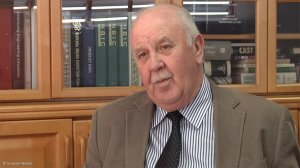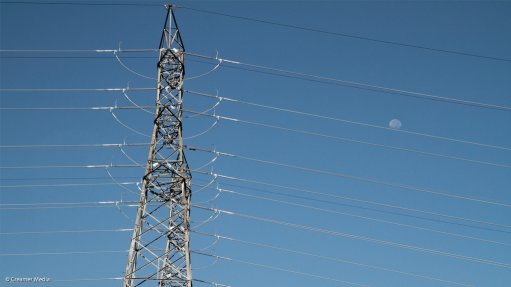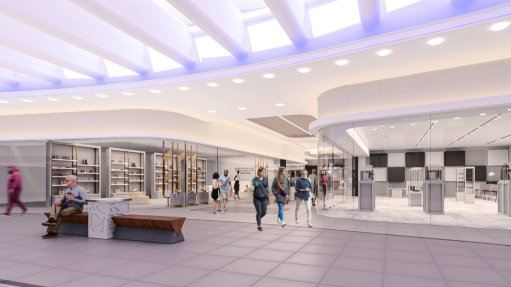SAIW proceeds with Mpumalanga centre plan

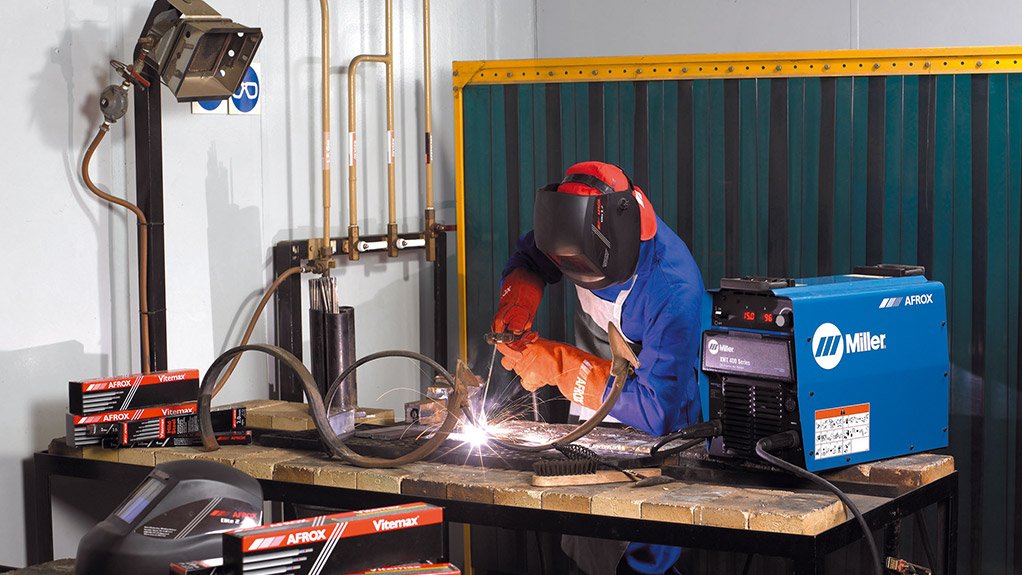
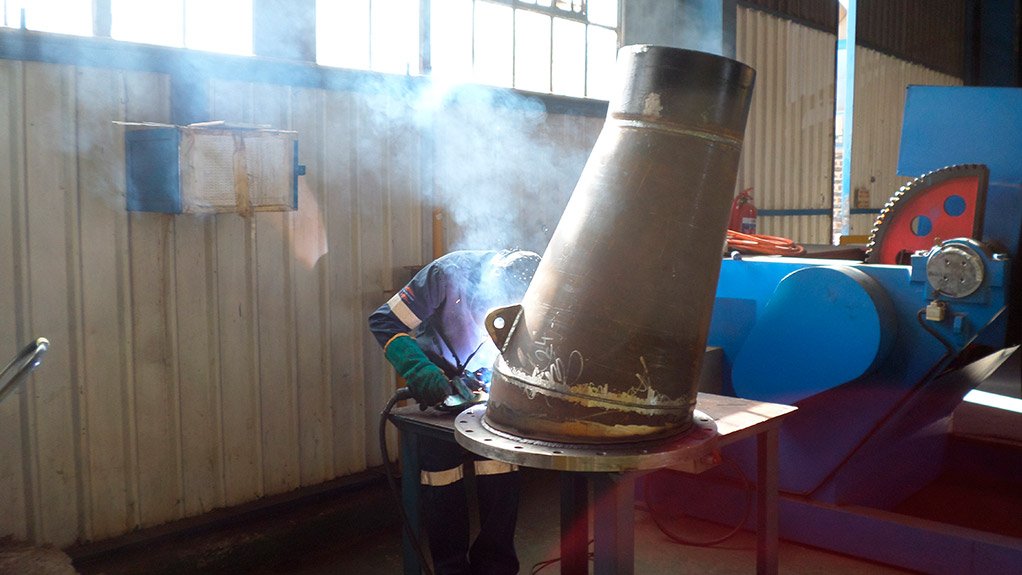
South African Institute of Welding executive director Jim Guild discusses recent developments and initiatives under way at the institute
ALLEVIATING PRESSURE The SAIW wants to channel additional demand at the Johannesburg facility to other training centres in South Africa
MPUMALANGA UPLIFTMENT POTENTIAL The Mpumalanga provincial government is keen to make the Middleburg region a centre for metals activities by providing training in several disciplines
The Mpumalanga provincial government and nonprofit technical organisation Southern African Institute of Welding (SAIW) aim to establish a R130-million training facility in Mpumalanga.
SAIW executive director Jim Guild tells Engineering News that, in the past five years, the institute has made a significant progress in expanding its training programme offering at its Johannesburg training facility, in City Deep.
However, he adds that the Johannesburg facility is operating at full capacity and the SAIW wants to reduce the capacity challenges of the facility by opening new training centres throughout South Africa.
Guild explains that an analysis of the institute’s feeder areas regarding its student population over the past five years indicated that a significant number of students come from Middelburg, Secunda, eMalahleni (formerly Witbank) and the surrounding towns and cities in Mpumalanga.
The SAIW believes that this number is significant enough to merit a facility in the province.
Guild says the Mpumalanga provincial government is keen to make the Middelburg region a centre for metals activities by providing training in several disciplines including, but not limited to, welding, quality control and production supervision.
Further, he notes that the SAIW has also been in discussions with the Department of Trade and Industry (DTI) to financially support the building of the training facility.
Guild stressed that, to establish the centre, it will require the buy-in of the SAIW, the Mpumalanga provincial government and the DTI.
However, the DTI has informed the SAIW that it does not have the money to support the establishment of such a centre.
Nonetheless, he says the institute remains determined to establish the centre and is working with the Mpumalanga provincial government’s Department of Economic Development and Tourism (DEDT) to make the training centre a reality.
“The Mpumalanga DEDT has identified several buildings . . . which could be refurbished to accommodate the training facility and the SAIW is investigating the possibilities of using one of the proposed buildings,” states Guild.
While no definite deadline has been set for the establishment of the training centre, he expects that it will be established in the next two years.
Growing Operations
Guild says the institute also plans to establish a training facility in Durban, KwaZulu-Natal.
Although the SAIW has not yet located an appropriate building in which to house the training centre, the institute aims to have an active branch in Durban by the end of this year.
The capital expenditure required to establish this facility is estimated at between R5-million to R6-million; however, Guild informs Engineering News that the SAIW has the funds available for this venture.
Further, he points out that, in May this year, the institute opened an office in Milnerton, Cape Town. The branch offers short courses, such as facility inspection protocol, engineering and theoretical training courses.
Although student numbers are growing steadily at the Cape Town branch, Guilds says the SAIW aims to establish another facility near the branch to expand its offering to include practical training.
He notes that the institute also provides about R2.4-million in funding each year for the running of yearly international welding engineering programmes.
The funding is divided equally between the universities of Pretoria and the Witwatersrand, in Gauteng.
Educational Expansions
Guild points out that, owing to many students who attend the SAIW courses lack sufficient proficiencies in maths and science, as well as prior practical knowledge of welding practices, the institute has introduced a Module Zero course in the past five years.
The foundational course introduces students to simple calculations and measurement techniques to ensure that they are equipped with some basic welding skills sets.
“We also introduced a welding safety course that covers a range of topics, such as electrical hazards and welding safety protocol, in January this year. The course is specifically suited to safety operators who do not have a background in welding, but manage welding operations,” Guild explains.
The institute has also launched a heat treatment practitioner’s course and a metallurgical heat treatment course this year.
Guild says the heat treatment practitioner’s course trains heat treatment technicians about postwelding heat treatment, such as reducing stresses on welds at construction sites.
“The first metallurgical heat treatment course took place last month. The course is about developing properties in materials that provide for special surface finishes and is specifically for engineers,” he explains.
Guild comments that the course was introduced because many companies had requested that the SAIW offer such a training course. The course is specifically for metallurgists.
Additionally, he points out that the institute is currently working with a North American-based welding training institute to develop electronic learning (e-learning) courses for learners.
Guild emphasises, however, that e-learning will serve as a support mechanism and not as a replacement for face-to-face learning sessions.
Article Enquiry
Email Article
Save Article
Feedback
To advertise email advertising@creamermedia.co.za or click here
Press Office
Announcements
What's On
Subscribe to improve your user experience...
Option 1 (equivalent of R125 a month):
Receive a weekly copy of Creamer Media's Engineering News & Mining Weekly magazine
(print copy for those in South Africa and e-magazine for those outside of South Africa)
Receive daily email newsletters
Access to full search results
Access archive of magazine back copies
Access to Projects in Progress
Access to ONE Research Report of your choice in PDF format
Option 2 (equivalent of R375 a month):
All benefits from Option 1
PLUS
Access to Creamer Media's Research Channel Africa for ALL Research Reports, in PDF format, on various industrial and mining sectors
including Electricity; Water; Energy Transition; Hydrogen; Roads, Rail and Ports; Coal; Gold; Platinum; Battery Metals; etc.
Already a subscriber?
Forgotten your password?
Receive weekly copy of Creamer Media's Engineering News & Mining Weekly magazine (print copy for those in South Africa and e-magazine for those outside of South Africa)
➕
Recieve daily email newsletters
➕
Access to full search results
➕
Access archive of magazine back copies
➕
Access to Projects in Progress
➕
Access to ONE Research Report of your choice in PDF format
RESEARCH CHANNEL AFRICA
R4500 (equivalent of R375 a month)
SUBSCRIBEAll benefits from Option 1
➕
Access to Creamer Media's Research Channel Africa for ALL Research Reports on various industrial and mining sectors, in PDF format, including on:
Electricity
➕
Water
➕
Energy Transition
➕
Hydrogen
➕
Roads, Rail and Ports
➕
Coal
➕
Gold
➕
Platinum
➕
Battery Metals
➕
etc.
Receive all benefits from Option 1 or Option 2 delivered to numerous people at your company
➕
Multiple User names and Passwords for simultaneous log-ins
➕
Intranet integration access to all in your organisation


